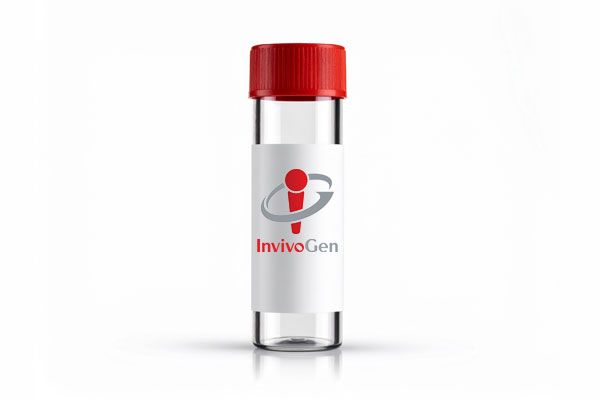
Anti-hCTLA4-hIgG1NQ
-
Cat.code:
hctla4-mab12
- Documents
ABOUT
Non-glycosylated monoclonal human IgG1 antibody against human CTLA-4
Anti-hCTLA4-hIgG1NQ features a mutated constant region of the human IgG1 isotype and the variable region of ipilimumab. Ipilimumab is a fully human IgG1 monoclonal antibody that targets CTLA-4 (also known as CD152), a negative regulator of T cell activation. By binding CTLA‑4, it inhibits negative signals that physiologically downregulate T cell activation and exerts its therapeutic activity by upregulating the antitumor activity of T lymphocytes [1,2]. In addition, it induces antibody-dependent cell-mediated cytotoxicity (ADCC) and TNF-α production [3]. Ipilimumab has been approved by the FDA for the treatment of unresectable or metastatic melanoma. It is undergoing clinical trials for lung cancer [4].
Anti-hCD20-hIgG1fut contains a N-glycosylation mutation of the constant region of the human IgG1 where potential asparagine (N) glycosylation sites are substituted by glutamine (Q) residues resulting in the production of a nonglycosylated antibody. Glycosylation of an antibody has no effect on antigen binding but is essential for Fc receptor-mediated activity [5]. In non-glycosylated antibodies the effector mechanisms mediated through the Fc receptors types (FcγRI, FcγRII, FcγRIII) and the C1q component of complement are severely compromised or ablated [6]. This antibody has been produced in CHO cells and purified by affinity chromatography with protein G.
Applications: Anti-hCTLA4-hIgG1NQ can be used with Anti-hCTLA4-hIgG1 to study the impact of effector functions.
References:
Grosso JF. & Jure-Kunkel MN., 2013. CTLA-4 blockade in tumor models: an overview of preclinical and translational research. Cancer Immun. 13:5.
Maio M. et al., 2013. Update on the role of ipilimumab in melanoma and first data on new combination therapies. Curr Opin Oncol. 25:166-72.
Laurent S.. et al., 2013. The engagement of CTLA-4 on primary melanoma cell lines induces antibody-dependent cellular cytotoxicity and TNF-α production. J Transl Med. 11:108.
Tomasini P., 2012. Ipilimumab: its potential in non-small cell lung cancer. Ther Adv Med Oncol. 4: 43–50.
Arnold J. et al., 2007. The impact of glycosylation on the biological function and structure of human immunoglobulins. Annu Rev Immunol 25:21-50.
Jefferis R., 2009. Glycosylation as a strategy to improve antibody-based therapeutics. Nat Rev Drug Discov. 8:226-34.
All products are for research use only, and not for human or veterinary use.
SPECIFICATIONS
Specifications
flow cytometry
Binding of Anti-hCTLA4-hIgG1NQ to human CTLA-4 has been tested using flow cytometry.
The complete sequence of this antibody has been verified.
The absence of bacterial contamination (e.g. lipoproteins and endotoxins) has been confirmed using HEK-Blue™ TLR2 and HEK-Blue™ TLR4 cells.
CONTENTS
Contents
-
Product:Anti-hCTLA4-hIgG1NQ
-
Cat code:hctla4-mab12
-
Quantity:100 µg
Shipping & Storage
- Shipping method: Room temperature
- Upon receipt, store at -20°C
- Avoid repeated freeze-thaw cycles
Storage:
Caution:
DOCUMENTS
Documents
Technical Data Sheet
Safety Data Sheet
Certificate of analysis
Need a CoA ?